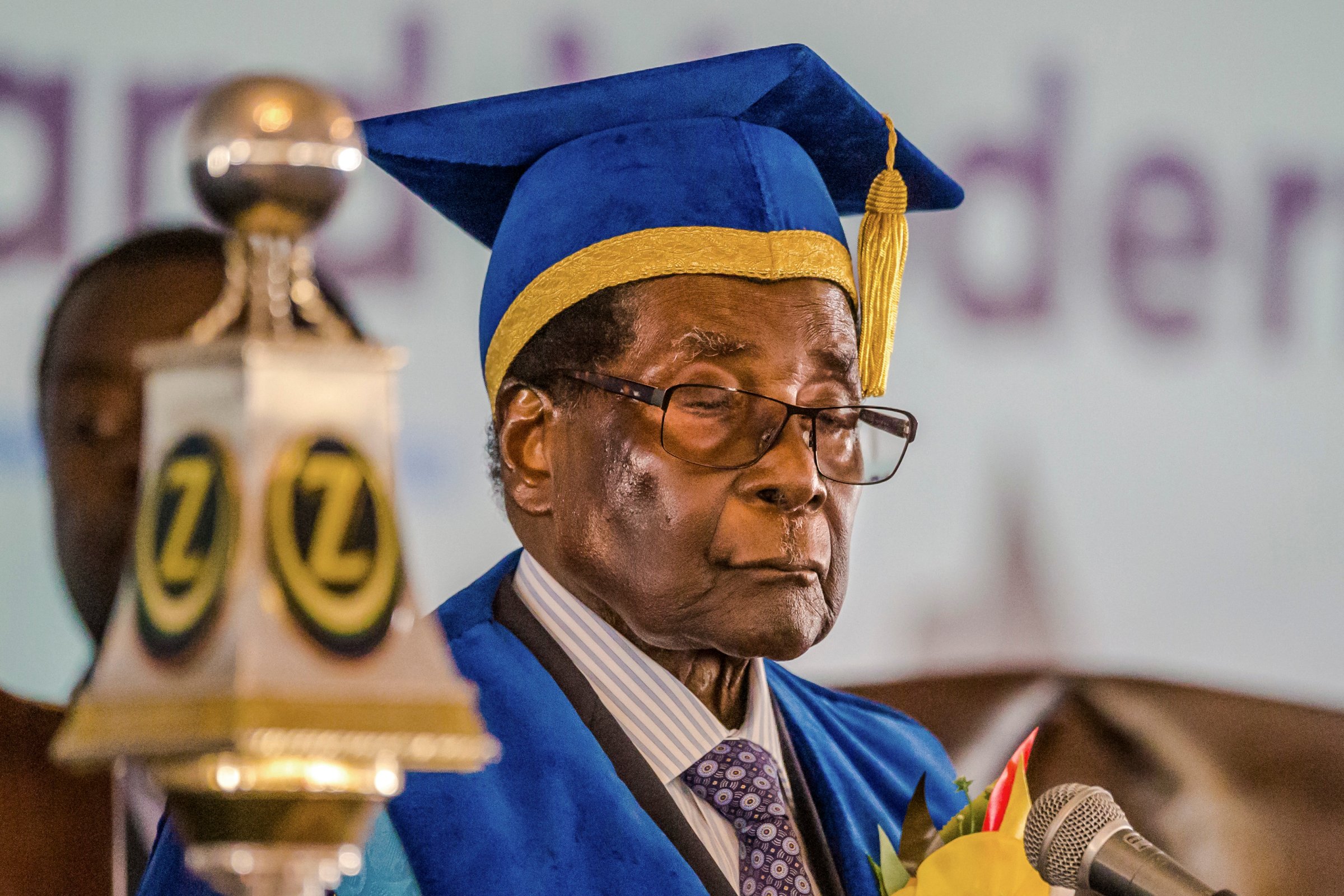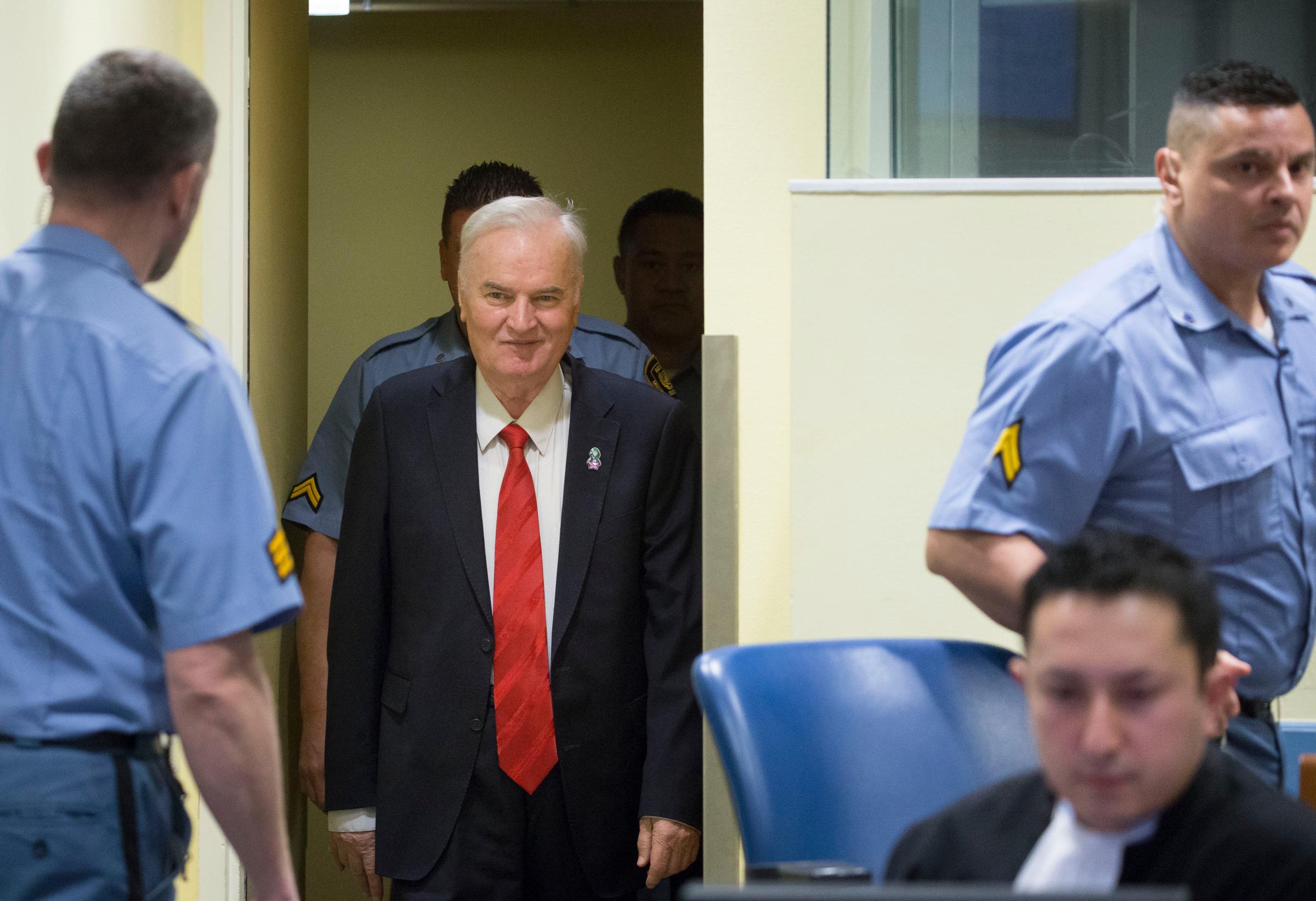
It’s worth reflecting for a moment on three major events that took place last week.
General Ratko Mladić, known as “the Butcher of Bosnia,” was finally convicted for genocide, crimes against humanity and war crimes. The Office of the Prosecutor at the International Criminal Court requested an investigation into crimes committed in Afghanistan since 2013 by all sides, including U.S. forces. And Robert Mugabe resigned as President of Zimbabwe after a 37-year rule marred by killings, torture and enforced disappearances.
For those of us who work in human rights, the significance of these events can hardly be overestimated.
One of the questions I get asked most often by victims of abuses, journalists, and even decision-makers is whether there is any point in investigating and documenting the violations of human rights when they seem to continue unabated all around the world, and the perpetrators, especially those in power, enjoy overwhelming impunity. “Is there any hope?” they would say. My response has always been “yes”, and these headline-making developments are a powerful reminder of why we should not give up.
Hope is easy to lose when we document in painstaking detail horrendous crimes under international law committed in Syria, Yemen, South Sudan, Darfur, Myanmar, Nigeria and many other countries around the world. It is also easy to lose when we present our findings to those with the power to help stop the violations and ensure accountability for the perpetrators, but instead see years of denials, political manipulations, and the outright shielding of those responsible from justice.
The bodies pile up while the perpetrators smile to the cameras, spin alternative narratives, portray themselves as saviours of their nations and build alliances, convinced that their status and powerful protectors will guarantee their immunity.
So it was with General Mladić, who, according to one of the Srebrenica massacre survivors, was smiling and giving chocolate to children, promising that everyone will be ok as he was sending thousands of men and boys to their death. This was the same man who proudly admitted “killing someone every time he went to Sarajevo” and claimed that he was thus “defending his country and his people”.

So too was it with President Mugabe, who believed he was appointed by God and claimed that everything he did meant justice for his people – while in fact under his rule, people in Zimbabwe were being killed, tortured, forcefully displaced and subjected to targeted political violence.
It was also true of every party to the Afghanistan conflict, who each bear a considerable degree of responsibility for numerous crimes, including torture and killings of civilians, yet were convinced that international justice did not apply to their actions.
The road to justice, truth and reparation has always been incredibly long and thorny. In Mladic’s case, victims’ families and survivors have waited for more than 20 years for this conviction, and thousands of cases of enforced disappearances remain unresolved.It remains to be seen whether, following Mugabe’s resignation, the new administration will renounce the abuses of the past and hold all of those responsible to account. The ICC is yet to make a decision based on the prosecutor’s request for Afghanistan and it may take years before any of the perpetrators are brought to a courtroom to begin accounting for their actions.
But these three cases are significant for three reasons.
First, they serve as a reminder and a warning to current leaders, military commanders and high-level officials that their apparent immunity might not be absolute. That no matter how strong and invulnerable they currently feel, and how confident they are in their ability to fend off accusation of grave crimes, their luck may change. Like Mladic, they, too, might have to answer for their crimes one day. This very notion can serve as a powerful deterrent. It will not stop wars and conflicts, but it might just make another attack on civilians, another execution, or bombing of a hospital a little bit less likely.
Second, they are the strongest possible incentive for those of us who meticulously investigate and expose human rights violations, and that includes human rights activists and journalists, to continue doing so – no matter how slim the prospect of justice would appear. Because without the testimonies, the photographs and other evidence that we collect, sometimes for months and years on end, it would be impossible to build the case against the violators and hold them to account.
Finally, and most importantly, every such event, be it a verdict, a prospect of an international investigation, or an ouster of a repressive president, gives hope for millions of people around the world who suffer great injustices on a daily basis. This hope is the foundation of their strength, and allows them to survive and maintain their faith in humanity in the most harrowing circumstances.
We must not forget that it is our duty too, to keep this hope alive—by carrying on the relentless fight for justice.
More Must-Reads from TIME
- Donald Trump Is TIME's 2024 Person of the Year
- Why We Chose Trump as Person of the Year
- Is Intermittent Fasting Good or Bad for You?
- The 100 Must-Read Books of 2024
- The 20 Best Christmas TV Episodes
- Column: If Optimism Feels Ridiculous Now, Try Hope
- The Future of Climate Action Is Trade Policy
- Merle Bombardieri Is Helping People Make the Baby Decision
Contact us at letters@time.com